En France, les deux sources de légitimité politique, comme il va de soi, du reste, dans la plupart des nations, a été Dieu et le peuple. L’héritage indo-européen du roi sacré, réactivé par l’apport germanique et la figure vétérotestamentaire de David oint par le Seigneur, a donné à l’Etat la caution divine qui a fondé longtemps sa légitimité. Il en restait quelque bribe dans le rapport parfois mystique qu’entretenait la foule avec la haute figure d’un De Gaulle, que l’on cherchait à « toucher », comme un monarque de droit divin. Le christianisme étant par ailleurs la respublica christiana, le peuple chrétien, il était normal que cette assise populaire fût aussi adoptée, à l’âge moderne, par le technicien de la chose publique, dans un contexte plus sécularisé. Néanmoins, la désacralisation du rapport vertical entre la tête et le corps de la société ne fut jamais totale. Une mystique de l’onction populaire est à la base de la conception démocratique du pouvoir, la notion de « démocratie » s’entendant au sens littéral, qui n’équivaut pas au légalisme électoraliste des régimes libéraux contemporains, mais à un lien profond entre le démos et l’Etat. On peut concevoir le rituel du vote comme un cérémonial qui délivre cycliquement à l’Etat un influx prenant sa source plus dans la foi ou la confiance, que dans la rationalité.
La conjonction entre les deux voies de légitimité politique, qui, d’une façon ou d’un autre, se réclamaient de la vox populi, a donné le ton de tout engagement public, qu’il fût au sommet ou à la base de la société. Jusqu’à ce qu’on s’avisât, depuis quelque temps, que la gestion d’un pays relevait plutôt de la « gouvernance », et qu’il n’y avait guère de différence entre la maîtrise des hommes et celle des choses. C’est ce que signifia, de manière abrupte, Margaret Thatcher, lorsqu’elle affirma que la société n’existait pas, mais seulement des impératifs économiques qui motivaient entreprises et individus.
La « dame de fer », bien qu’ayant inspiré le néoconservatisme politique, qui, sous son appellation de reaganisme, allait révolutionner la conception politique de la droite occidentale, n’avait pas tout à fait adhéré, en apparence, aux principes du postmodernisme, qui, d’une certaine façon, considère que tout n’est que société. Ou plutôt, devrait-on dire, que tout est sociétal. Ce qui n’enlève rien aux soubassements libéraux d’une telle assertion, puisque la société a vocation, in fine, à être marchandisée, comme le reste du réel existant.
La postmodernité se définit par sa logique déterritorialisante : elle arrache toute vie à son terreau naturel pour en faire un produit charrié par le flux illimité du commerce.
Ce que les mots veulent dire
Confucius conférait aux mots un pouvoir que d’aucuns jugeraient exorbitant. Ou plutôt, il considérait que l’accord sur la bonne définition de ceux-ci permettait de bien gouverner les hommes.
Or, ce qui s’est dilué avec la liquéfaction générale des choses et des liens, c’est bien le sens des mots. Les transgressions multidimensionnelles, et la métamorphose des réalités humaines traditionnelles en réseaux pulsionnels, ont vaporisé le dictionnaire vernaculaire. Tout sceptique en serait ravi, qui verrait dans notre monde l’incapacité à dire, à transmettre et à recevoir. Le cours du monde, du reste, s’accélérant, et se détachant du sol de son Histoire, le vocable n’est plus guère susceptible d’invoquer quoi que ce soit de permanent, et le lexique n’est plus qu’un vain fantôme que l’on exhibe, dans cette fête foraine qu’est devenu la politique, un croquemitaine, parfois, tout juste bon à faire comme si nous étions effrayés. Ainsi des étiquettes comme « fascisme », « communisme », « révolution » etc.
Et même « peuple ».
Il est d’actualité de s’y référer à l’occasion des « manifs pour tous » ou autres sautes d’humeur. Caroline Fourest a nié que les réfractaires au mariage pour tous fussent du « peuple ». Elle a regardé leurs chaussures, et a conclu que c’étaient des bourgeois. Pour un peu, elle se serait référée à la Commune, comme Taubira chantonnant le Temps des cerises. La canaille, eh bien j’en suis !
C’est à mourir de rire, bien sûr. Qui ne sait que les porteurs de Rolex et autres bobos homos sont sans doute bien plus à l’aise dans la société de consommation made in California qu’un catho tradi, qui a, au moins, en sa faveur une répugnance pour Mammon, ce qui est désormais loin d’être le cas dans la Gauche caviar et décomplexée.
De fait, le « peuple », soit il s’abstient, soit il vote pour le Front national.
Le destin national
Si l’on prend le temps et la distance de considérer le destin français, voilà ce que l’on constate : des peuples disparates ont occupé notre sol au fil des âges, et des strates de civilisations se sont superposées, et ont plus ou moins fusionné sans abdiquer leur singularité. Si bien que l’Histoire de France peut être considérée comme blanche, chrétienne, et d’héritage celte, grec et latin. Et comme la société d’autrefois, longtemps, est restée paysanne, c’est-à-dire vouée à la permanence des structures et des mentalités, tout ce qui sourdait de ce substrat lui était consubstantiel. Même les villes, au dam de Descartes, en étaient des excroissances naturelles, bien que leur logique les eût portées vers d’autres horizons. Les corporations étaient le reflet urbain de l’enracinement paysan.
L’Etat, en France, fut toujours, comme tout Etat, mais à un degré extrême, le fruit de la volonté. Néanmoins, et quoiqu’il imposât sa dure étreinte sur le corps d’une Nation qu’il modelait à sa guise, il n’attenta que peu à la réalité des patries charnelles. Un Français était sujet du Roi, mais aussi picard ou auvergnat. La France était ainsi une petite Europe, car elle cultivait la diversité. Mais elle réalisait aussi ce qui manquait à l’Europe, l’unité.
Faut-il traduire l’arrachement civilisationnel qui suivit l’avènement de la modernité, dès la Renaissance, comme une fatalité nécessairement réduite à donner ce que nous avons sous les yeux, un monde déréglé, délimité, déstructuré, déraciné, dénaturé et déshumanisé ? L’urbanisation universelle, l’industrialisation, la marchandisation mondiale, les idéologies humanitaristes et internationalistes, et d’autres facteurs, en ont été les déclinaisons, que certains estiment être des progrès, d’autres des catastrophes et les vecteurs véritables du déclin. Comment les peuples peuvent-ils perdre leur mémoire, leur vocation, leur être ?
Le gaullisme fut à plus d’un titre une divine surprise. Un peuple en décadence, dont les gouvernements, depuis la Grande Guerre, capitulaient devant la force des choses, ou bien se couvraient de ridicule, semblait reprendre le chemin de l’honneur, et se réapproprier son avenir. L’Etat, soudain, redevenait ce levier indispensable pour soulever le monde. Et l’Archimède de cette « révolution » était un homme doté d’une volonté de fer, assez lucide et machiavélique pour manier les hommes, et assez idéaliste pour être guidé par une haute idée de notre destinée. La lecture répétée du livre talentueux d’Alain Peyrefitte, « C’était de Gaulle », s’impose à celui qui veut retrouver une France qui était encore à la hauteur de sa vocation, une France indépendante, orgueilleuse, hardie, optimiste. On y puise à la source des idées riches et encore d’actualité. Car ce qui est frappant dans cet ouvrage admirablement écrit, c’est sa fraîcheur, son intelligence, et les rudes leçons qu’il nous prodigue. Un véritable programme, si l’on veut. A mettre entre toutes les mains, surtout des jeunes.
Le Général, certes, était entouré d’hommes qui avaient de la trempe, et qui étaient animés d’un enthousiasme qui nous fait envie maintenant. Cependant, bien que les résultats de notre économie, dirigée par un Etat fort, fussent superbes, que le chômage fût quasi inexistant, on sentait, au fil des témoignages, des anecdotes et des comptes rendus, que de Gaulle était loin d’être accepté par tous. Sa forte personnalité en imposait, mais certains n’attendaient qu’une occasion pour le trahir. Pompidou et Giscard, ces hommes de la finance, de la banque, adeptes de l’ouverture des marchés et de l’entrée de la Grande Bretagne dans l’Europe des six, n’attendaient que le bon moment pour agir. De Gaulle n’avait pas de mots assez durs pour critiquer une bourgeoisie, pour lui artificielle, appâtée par le gain, qui lisait à droite le Figaro, et à gauche l’Immonde (le mot est de lui). Il vilipendait aussi la caste des journalistes, partagée entre communistes et américanistes. Il condamnait un libéralisme coupable d’accroître l’injustice et de favoriser les tricheurs. Pour lui, seul comptait le lien mystérieux mais réel entre l’Etat, incarné par un homme, et un peuple se souvenant, comme tout bon aristocrate, de ce qu’il est, de son sang, de son patrimoine, de son passé. Et le plus miraculeux, c’est qu’on eut l’impression, au grand désappointement des Judas qui patientaient impatiemment, que le fil tenait, entre l’instinct populaire et la volonté d’un homme.
Une série de trahisons
L’effondrement de la fin des années soixante apparaît dès lors, soit comme une anomalie, soit comme l’expression nationale d’une fatalité mondiale. Le Général pressentait cet achèvement pitoyable. Il essayait de contrer l’américanisation des mœurs, du langage, des esprits, par une politique éducative forte. Mais comment affronter ce ras de marée ?
Le « mariage pour tous » est l’une de ces vagues lointaines de ces années là, un de ces déferlantes destructrices que nous envoie la civilisation matérialiste américaine. Depuis la mort du Général, le trop plein de palinodies, de rétractations, de cynisme et de trahisons a infesté l’élite nationale. Ce fut comme un débordement d’épandage. D’abord la droite se découvrit mondialiste, reaganienne, libérale, libre-échangiste, et fut convertie au grand marché européen, qui prit la place de cette belle idée, partagée par de Gaulle, d’une Europe puissance dont le noyau aurait été le couple franco-allemand; dans le même temps, la gauche se convertit au marché, à l’entreprise, au fric et au luxe, ouvertement, et tint pour une grande conquête de l’humanité le métissage généralisé, que la droite avait préparé par une politique d’immigration suicidaire. Puis vint le moment où on s’aperçut qu’il n’existait plus guère de France, ni de société française, ni même de français, et que l’Histoire de notre patrie n’était qu’un point de vue fallacieux, et que seul subsistait comme horizon le grand Océan du commerce, remué par les pulsions libératrice d’un individu enfin acteur de sa machine désirante.
Face à ce naufrage, quelle attitude faut-il avoir ?
Tout patriote encore attaché à la mémoire de son sang (j’appelle sang l’amour que l’on porte à son histoire nationale) est placé devant un dilemme : ou bien il considère que tout est foutu, que la décadence est irréversible, que la logique du monde doit aboutir infailliblement au désert actuel, et à l’oubli définitif de notre destin commun ; ou bien il pense que le sursaut national des années soixante, comme celui, jadis, incarné par la Geste de Jeanne, est une donnée itérative de notre caractère, que notre peuple, pour ainsi dire en dormition, doit se réveiller, et renouer avec sa vocation.
Les deux options, malgré leur nature antithétique, sont nobles. La première invite au retrait, à une réflexion profonde, à un ressourcement personnel, et à un espoir un peu désespéré d’un retournement lointain de la logique mortelle des choses. La deuxième convie à l’action, à une foi dans l’imminence de la victoire, car il serait impensable que le peuple français se renie à ce point.
Selon ce dernier point de vue, nous sommes un peu comme en juin 40. La défaite semble irrémédiable, et les collaborateurs s’en donnent à cœur joie. Les dirigeants de l’UMPS ont choisi de considérer que la victoire de l’Amérique allait de soi, et ils la souhaitent même. Ils ont méthodiquement, sournoisement, agressivement, comme des gens qui ont toujours haï notre nation, déconstruit tout notre dispositif de protection, anéanti nos bataillons industriels, livré notre culture à nos ennemis mortels, donné notre armée à l’état-major US, confié les guides du gouvernement à une entité technocratique supranationale, aboli les frontières et les repères, supprimé notre Histoire dans les classes, déshonoré nos ancêtres, discrédité l’autorité de l’Etat… Autrement dit, l’instrument étatique peut marcher, la police peut réprimer, l’autorité législative légiférer, le pouvoir exécutif exécuter, etc., tous ces rouages en mouvement ne produisent que du vide, ou ne servent qu’à démolir encore plus notre nation, notre identité et nos intérêts.
Dans cette optique, la loi et ce qui s’ensuit n’est plus légitime. Comme disent les Chinois, les gouvernements qui se sont succédés depuis une trentaine d’années, voire plus, ont perdu le mandat du Ciel. De Gaulle, avec l’Appel du 18 juin, a eu la prétention extravagante d’incarner la France. Pas celle que pourrait représenter tel gouvernement, mais la France éternelle, celle qui ne peut, comme il le dira plaisamment, fondre comme une châtaigne dans la purée. Et ce pari fut le bon.
« Ce sur quoi il ne faut jamais céder, c’est la légitimité, voyez-vous, c’est l’intérêt supérieur de la nation, c’est sa souveraineté. Primum omnium salus patriae. (Avant tout, le salut de la patrie).
La Nation est un tout. Ce n’est pas en manifestant, main dans la main, de façon pitoyable, contre le mariage homo, en criant, du reste, qu’on aime les homos, qu’on se refera une virginité. Boutin, Mariton, Collard et tutti quanti, badigeonnés en rose ou ceints d’une écharpe tricolore qui ne leur va pas du tout (ils devraient plutôt porter la bannière étoilée), ont beau jeu de berner le naïf, qui croit voir en eux des champions des « valeurs ». On sait très bien que l’UMP au pouvoir ne reviendra pas sur cette loi scélérate. La constitution d’un « thé party » à la française ne procède que d’une tactique électoraliste. Il n’y a que l’épaisseur d’un papier à joint entre l’agité friqué de « droite » et le bobo « cool » de « gauche ». Copé « moral » ? Quelle rigolade ! Hollande "socialiste" ? C'est une blague de très mauvais goût, et même une manifestation flagrante de débilité, de ramollissement du cerveau. Hollande et ses acolytes haïssent le socialisme, comme des bourgeois vulgaires.
Que l’on commence par interdire la conversion des élus en avocats d’affaires, et les conférences gratifiantes des chefs d’Etat, qui semblent par là recevoir le prix de leur salaire. Il est pour le moins étrange que les émoluments d’un Sarkozy, à la suite de ces traîtres que furent Gorbatchev ou Aznar, reçus par des organismes tels que Goldman Sachs, telle banque brésilienne ou telle université américaine, ne suscitent guère que des sourires un peu jaloux. Assurément, c’est un cas de haute trahison, l’indice infaillible d’un comportement qui est loin d’avoir été clair lorsque le pouvoir était en jeu. Imaginez-vous de Gaulle donner une conférence à 200 000 € à la bourse de Nouillorque ?
Claude Bourrinet
http://www.voxnr.com





 del.icio.us
del.icio.us
 Digg
Digg
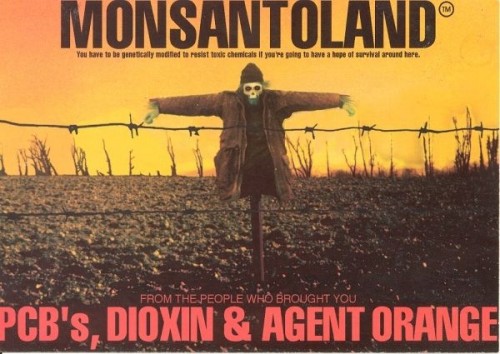






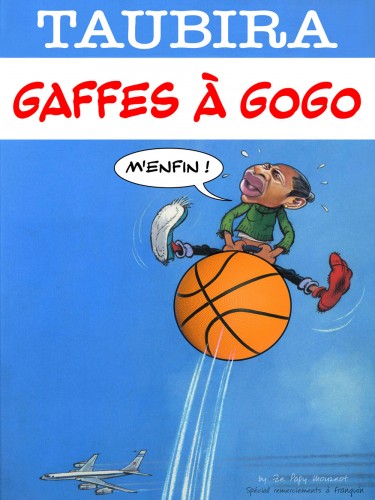
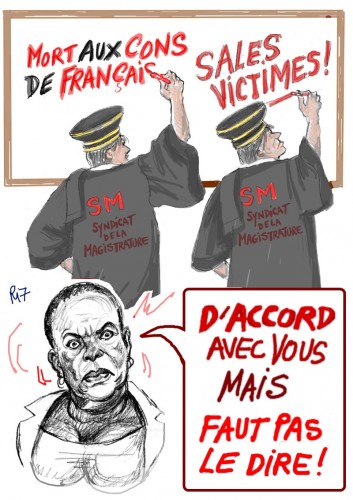
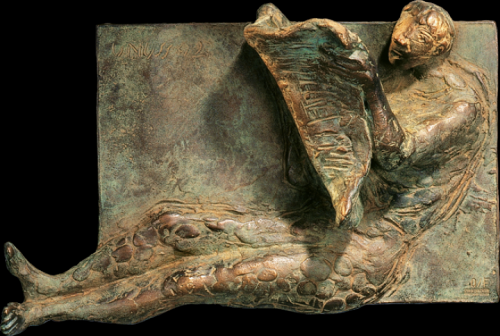


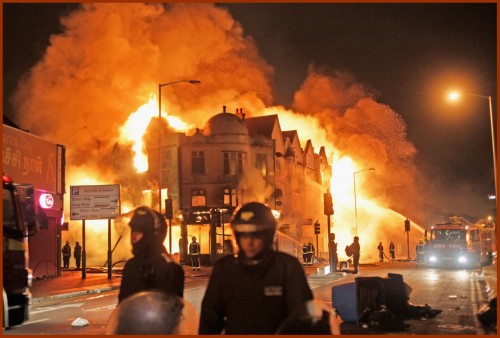








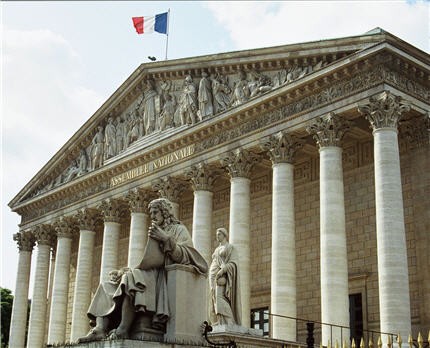


 Het gaat de Zuid-Europese landen niet voor de wind. Italië kreunt onder een politieke crisis wat uiteraard niet bevorderlijk is voor het treffen van maatregelen om iets te doen aan de barslechte economische situatie waarin dat land verkeert. Spanje is er nog erger aan toe , de conservatieve regering heeft er te kampen met een aantal financiële schandalen waarbij een aantal van haar ministers betrokken zijn en als kers op de taart kwam het nieuws dat een ‘infante’ (de titel van een dochter van de Spaanse koning) van medeplichtigheid aan een ernstige fraude wordt verdacht. Aan de situatie in Griekenland hoeven we zelfs geen woorden meer te verspillen maar misschien wel aan die in Frankrijk. Een land dat weliswaar noordelijker ligt maar blijkbaar toch nog zuidelijk genoeg om ernstig aangetast te zijn door de epidemie die rond de Middellandse Zee heerst.
Het gaat de Zuid-Europese landen niet voor de wind. Italië kreunt onder een politieke crisis wat uiteraard niet bevorderlijk is voor het treffen van maatregelen om iets te doen aan de barslechte economische situatie waarin dat land verkeert. Spanje is er nog erger aan toe , de conservatieve regering heeft er te kampen met een aantal financiële schandalen waarbij een aantal van haar ministers betrokken zijn en als kers op de taart kwam het nieuws dat een ‘infante’ (de titel van een dochter van de Spaanse koning) van medeplichtigheid aan een ernstige fraude wordt verdacht. Aan de situatie in Griekenland hoeven we zelfs geen woorden meer te verspillen maar misschien wel aan die in Frankrijk. Een land dat weliswaar noordelijker ligt maar blijkbaar toch nog zuidelijk genoeg om ernstig aangetast te zijn door de epidemie die rond de Middellandse Zee heerst.
